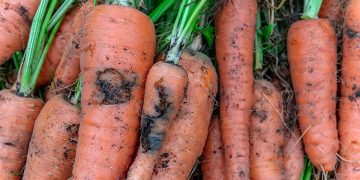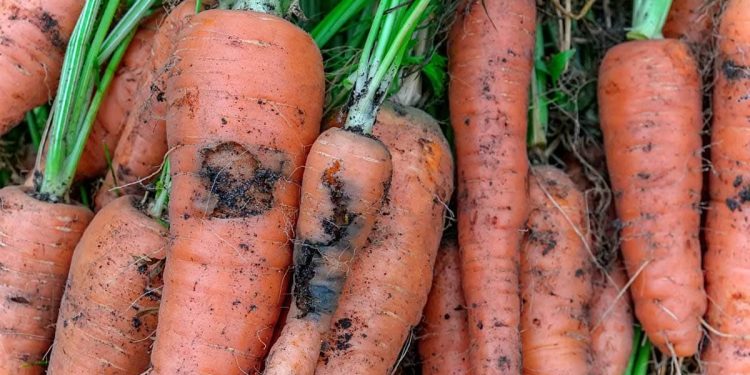#StopCarrotRustFly #CarrotPestControl #NaturalPredators #CropResilience
The carrot rust fly (Psila rosae) is a pest that poses a significant threat to carrot crops worldwide. These flies lay their eggs near the base of carrot plants, and their larvae burrow into the roots, causing severe damage that can render the entire crop unsuitable for consumption. The economic and social consequences of the infestation are far-reaching, affecting farmers, distributors, and consumers alike.
To combat this pest, farmers can adopt several measures, including crop rotation, using insecticides, and employing physical barriers like fine mesh screens. However, these solutions are often expensive, environmentally harmful, or not sustainable in the long run.
One promising approach to controlling carrot rust fly infestations is through the use of natural predators. Several parasitoid wasp species, including Trybliographa rapae, have been identified as effective predators of the carrot rust fly. By releasing these wasps into carrot fields, farmers can naturally control the pest population without using harmful chemicals.
Another approach is through the development of resistant carrot varieties that can withstand the rust fly infestation. Research is ongoing to identify genes that confer resistance to the pest, and breeders are working to incorporate these traits into new carrot cultivars.
The development of these solutions is critical to protect crops and ensure food security. The carrot is an essential vegetable globally, and a widespread infestation can lead to food shortages and increased food prices. It is crucial to take preventive measures, such as regular crop monitoring and early detection of infestations, to mitigate the economic and social consequences of carrot rust fly damage.































